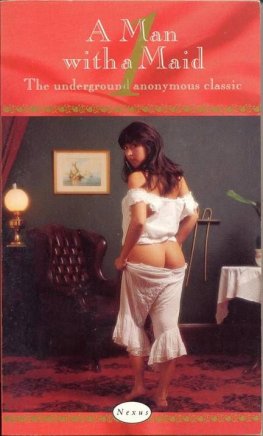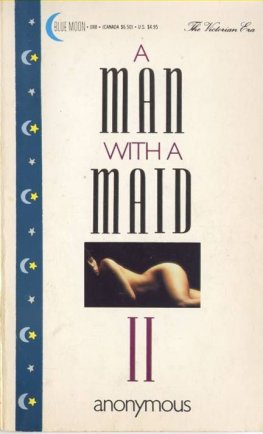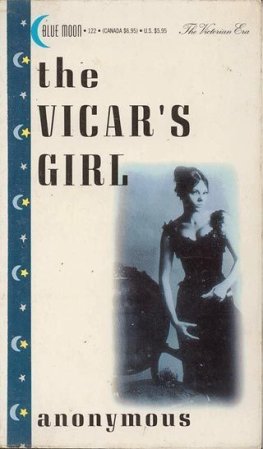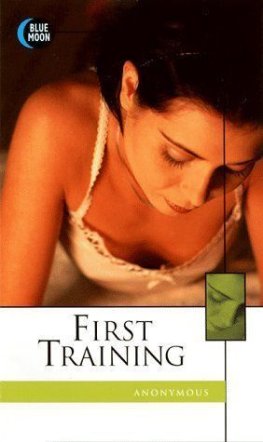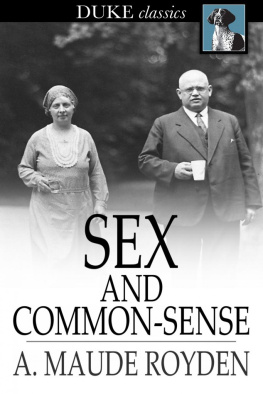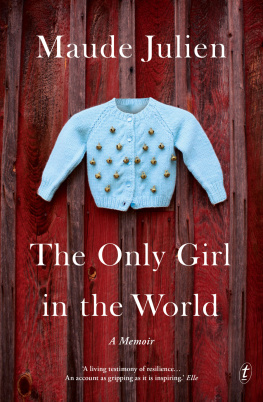Anonymous - Augustus and Lady Maude
Here you can read online Anonymous - Augustus and Lady Maude full text of the book (entire story) in english for free. Download pdf and epub, get meaning, cover and reviews about this ebook. genre: Romance novel. Description of the work, (preface) as well as reviews are available. Best literature library LitArk.com created for fans of good reading and offers a wide selection of genres:
Romance novel
Science fiction
Adventure
Detective
Science
History
Home and family
Prose
Art
Politics
Computer
Non-fiction
Religion
Business
Children
Humor
Choose a favorite category and find really read worthwhile books. Enjoy immersion in the world of imagination, feel the emotions of the characters or learn something new for yourself, make an fascinating discovery.

- Book:Augustus and Lady Maude
- Author:
- Genre:
- Rating:4 / 5
- Favourites:Add to favourites
- Your mark:
- 80
- 1
- 2
- 3
- 4
- 5
Augustus and Lady Maude: summary, description and annotation
We offer to read an annotation, description, summary or preface (depends on what the author of the book "Augustus and Lady Maude" wrote himself). If you haven't found the necessary information about the book — write in the comments, we will try to find it.
Augustus and Lady Maude — read online for free the complete book (whole text) full work
Below is the text of the book, divided by pages. System saving the place of the last page read, allows you to conveniently read the book "Augustus and Lady Maude" online for free, without having to search again every time where you left off. Put a bookmark, and you can go to the page where you finished reading at any time.
Font size:
Interval:
Bookmark:
Anonymous
Augustus and Lady Maude
I. SOL
I. Augustus to Lady Maude
Wight, 2 June
My dear Maude, You may be sure that I did not intend to write to you so soon after your departure for Lake Garda. Yet I need your advice and counsel in a matter of great delicacy. Indeed, I do not exaggerate when I tell you that it is a choice upon which depends all my future happiness. If a man may not consult his nearest and dearest female cousin on such occasions, where is he to look for assistance? I am tempted to believe that my life was changed utterly last night, soon after nine o'clock. Dr. Raspail would tell you, of course, that such mental impulses on my behalf go only to prove my condition of neurasthenia. I cannot help these opinions on the part of others. Let me tell you first of the event and then beg your assistance. I went last night to the recital rooms to hear Poland's greatest son-the mane of splendid hair and the fingers so white and thin-perform a double prodigy. We were to burn in the romantic grandeur of Brahms's Variations and Fugue on a Theme of Handel, having first had our spirits soothed by the elegaic cadences of my beloved Robert Schumann's Etudes Symphoniques. There is something so intimate and sensual about a recital of this sort on a warm summer evening. One sits among red plush and gilding, the Steinway polished to a liquid gloss of honey, the keys smooth to touch and sounding with such cool precision. One's gaze caresses the bare neck and frail shoulder blades of a fine young woman in a low-cut dress. The bone so slender and the skin so sleek with humid air. There one observes a girl of sixteen, sitting meek and demure as a nun in the spell of the music, the sweep of her nut-brown hair like the veil of a novice framing a face of pale oval beauty, her loveliness lit by the steady gaze of hazel eyes.
Yet there is nothing more sensuous than the fine piano itself, its scents of velvet and wood, the fragrance of its polish, the pure white felt of its hammers. If ever there was a magic enchantment which put to sleep the court and castle, it was such clear and elegant music as this. So I thought to myself as a silence fell upon the beauty of women and the men in their formal dress and decorations. Then the spell was cast in the plaintive descending chords which are the prelude to the Etudes Symphoniques. I was so absorbed in thoughts of Schumann, the great romantic angel who died in the madhouse, his soul torn between the sublime inner music of paradise and the torment of the devil's fugues, that I could not have told you if there was a woman within a hundred yards of me. My eye came to rest on her the first time and I scarcely noticed anything about her.
She was eighteen, I suppose, and she had straight blond hair which was put up into a coquettish little bun on the top of her head. It was worn rather as a little girl might, giving an appearance which is both prim and yet somehow provoking. We were sitting at opposite ends of a crescent-shaped row of seats. It was not surprising, then, that my eye should rest upon her from time to time. Again the plaintive elegiac chords; their harmonies extended as suggestively as only the great Schumann could do. Without being at first aware of it, I was looking at her again. You will laugh at me, my dearest Maude. I know you will. And yet I beg you to try and understand. She was no ravishing beauty. I cannot tell you what it was in her race which drew my gaze back to her so often that, at last, I felt she and every other person in the recital room must have observed the oddity of my conduct. No, my beloved cousin, it was not the face of a great beauty. Does that matter? Petrarch, they say, only saw his earthly goddess Laura De Sade on a single occasion. And yet, the greatest of all love poets devoted the rest of his life to her praise. It was not beauty alone which moved such a man to worship. What would you say if you could see my own goddess of the recital, who looked bored by Schumann at the end of the second etude? It is a rather wan and sulky little face. The eyes are a darkish hazel. The nose is somewhat long and pointed and the chin too narrow to permit of that oval beauty which is so much admired by purists. Yet still my gaze returned to her as the mournful sweetness of Schumann broke out at last into the grand leaping chords of the final variation. In her plain black dress and red shoes with tall heels to increase her apparent height, one had a good idea of her figure. She has a slim and almost fragile young body, made for youthful pleasure rather than the full maturity of womanhood. How can one imagine such a body at forty or fifty? I, at any rate, fail to. So there I sat, as the divine Petrarch of the sonnets must have done on a similar occasion. Alas, I am no writer of verses. My less worthy pursuit was to find out whatever I could about the girl who had held so much of my attention for fully half an hour.
As you will guess, I had gone to the recital as one of Lady Anna's party. Does that not make my conduct the more extraordinary? I might have paid court easily enough to one of my own female companions. Did I wish for proud pale-skinned beauty at twenty-five?
How easily I could have given attention to a dozen or such a kind. Was my preference for tall graceful beauty-the oval beauty of a face framed by the veil of brown hair? A dozen more waited to be wooed at sixteen years old! It would not do. Despite all that conscience and decorum could urge, I was unable to draw my thought away from the object of my curiosity. I will tell you, my dear, how far gone I was before the Schumann variations were over. I already began to indulge in flights of fancy, assuming that I had won the heart-or at least the attention-of the sulky little minx with her pert little bun of blond hair. I imagined what I would say to her-the conversations we would hold between us-though I had never heard her voice. I pictured us together in places I am sure she has never seen and upon which her eyes would open with wonder. There we were on that terrace just below San Miniato, which overlooks all the beauty of Florence and the Arno.
Or else we walked through the gardens of the Prado in the warmth of a Spanish autumn and, later, smelt the eucalyptus and pine in the avenues of the Escorial. We ate in the most elegant restaurants of the Via Veneto-or Florian's in the Piazza San Marco at Venice. And then again we dined in the workers' cafes of the Porte de La Chapelle or by candlelight under the arcading of the Place des Vosges. Florence and Rome, Paris and Madrid, Venice and the Escorial were closer then than my companions. You see how far gone I was, my dear friend? You must not, however, believe that I fell suddenly in love with the girl-all at a thunderclap. Interest became preoccupation-and preoccupation became obsession before the evening was done. As Guenevere is made to say in her defence, it was as if one should Slip slowly down some path worn smooth and even, Down to a cool sea on a summer day It does not convince you, my dear Maude. Does it? I cannot excuse-I cannot defend-I can scarcely explain my new infatuation. Yet I am infatuated. You must believe that. By the time that the interval in the recital came, and our party withdrew to take the air for ten minutes on the terrace, I could not banish her from my mind. Whoe'er she be! That not-impossible she! As we strolled under the round globes of the lamps on their ornate wrought-iron pillars, the gowns of the women were pale and luminous. It was a time between lamplight and twilight.
What a fool I made of myself in conversation, dear Maude. I was possessed, you see, by the thought that once the recital was over the girl and I would go our separate ways. I should never know who she was and never, never be able to identify her. You see the state I was in-and still am-ma chere amie? So I said airily that I had seen a girl across the recital room, whom I could swear I knew and yet could not think of her name. I invited each of my companions to supply it, if she might. Miss Prince looked blank and Lady Bab stared at me as if I must have been mad. As for Lord Significance, he would not deign to take the cigar from his mouth. What could I want with so common a girl as the one they heard me speak of? It was Miss Prince who took pity on me at last and said she believed my goddess to be a counter-girl somewhere-a Julie Something. It was enough! With that I would track her to the ends of time and space. She was Julie!
Font size:
Interval:
Bookmark:
Similar books «Augustus and Lady Maude»
Look at similar books to Augustus and Lady Maude. We have selected literature similar in name and meaning in the hope of providing readers with more options to find new, interesting, not yet read works.
Discussion, reviews of the book Augustus and Lady Maude and just readers' own opinions. Leave your comments, write what you think about the work, its meaning or the main characters. Specify what exactly you liked and what you didn't like, and why you think so.

